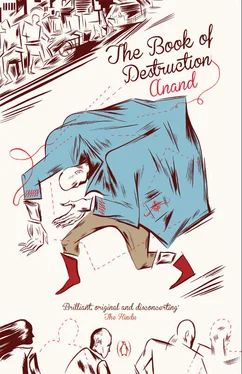Arthur Koestler’s Gallery of Real-Life Coincidences comes to mind. It was an interesting and harmless pastime for him. His criterion for the inclusion of an event in the gallery was that the event should otherwise be beyond explanation. But Koestler was not very rigorous in his selection, as Richard Feynman later pointed out. One of the cases in his gallery was an incident during the death of Feynman’s wife. She was recorded to have died at 9.22 and the coincidence was that the wristwatch on her bedside table had stopped at exactly 9.22. But this case did not stand up to Feynman’s scrutiny. He pointed out that the watch was a very old one, which worked only when kept in a particular position. Mrs Feynman’s nurse must have picked up the watch to note the time of death and put it back carelessly, whereupon it stopped working. What appeared to be a coincidence was easily explained with a better understanding of the circumstances. Till what point then do we attempt to solve a problem and when do we give up and declare it unsolvable? This question then transforms into a problem begging a solution. Mathematicians once believed that everything that is true can be proven. Kurt Gödel, however, with his Theorem of Incompleteness established that mathematics was not complete and truths are not always provable. So the question then became: how do we know which truth is provable and which is not? To add to the confusion of the seekers came Alan Turing’s theorem, stating that it was not possible to prove which truth is provable and which is not! When the borders are not clear we cannot call them borders. Pardon me for the digression, but it becomes significant in the light of the incident that I am about to narrate to you. Or, perhaps, who knows, as you read it, you might find these issues falling back and new ones cropping up. I should not sow more uncertainties in a story that already has enough. Let me come straight to my story. It all happened this way …
A traveller comes to a city and checks into a hotel. He unpacks, has a bath and heads out for some fresh air, with the intention of exploring the city. Evening sets in, the street lamps turn on and one by one lights begin to appear in the windows. Suddenly he realizes that he has forgotten to take the card of the hotel with him and cannot now remember its name. He has already walked quite a bit and appears to have lost his way. After several failed attempts to locate his hotel, he goes into a nearby hotel and approaches the receptionist at the front desk. He tells her his story and gives her, to the best of his abilities, a description of the hotel he had checked into.
The girl gives him a wide grin and informs him that this is his hotel, does he not remember? He is positive it is not. It was not such a tall building and it had no garden in front of it as this one had. Moreover, contrary to the girl’s claim, he was confident that it was not she who had checked him in. The person who had checked him in was a morose young man, wearing a white shirt and a tie, and this girl was nowhere in sight then. When he continues to protest, her smile fades, she hands him the key to ‘his’ room and with her pen points him in the direction of the lift, with an imperiousness that makes him uneasy.
He submits, takes the key, summons the lift and goes to room number 412 as indicated on the key. To his surprise he finds all his belongings inside, innocently arranged, just as if he might have left them there. The clothes he had changed out of were in the wardrobe, the book he was reading, on the bedside table. But he is still certain this was not the room he had checked into. The bed and sheets were different. There had been only one window in the old room, and that opened on to a cluster of slums, while this room had two, one opening on to the garden and the other on to a swimming pool. But he couldn’t argue with the fact that all his belongings were here.
This is not a story I have constructed for entertaining you. It was an experience a friend of mine had. Well, can’t really call him a friend, not even a proper acquaintance. I have had occasion to meet this man four times, always in the berth opposite mine, in the various railway coaches in which I travelled, over a period of a few years. Speak of coincidences. Hasan Ibn al Sabbah was his name, not a very common name in our country. And if that weren’t strange enough, this man bearing an unusual name, whom I had met before in bizarre circumstances, calls me in the dead of night and describes to me an experience straight out of fiction …
I had in fact forgotten his name till he mentioned it. I had remembered the unusual circumstances and that the man had an unusual name, that was all. But he obviously remembered my name because he asked for me by name when I picked up the receiver. He reconfirmed that I was the person whom he had met four times before in trains. After apologizing for disturbing me at that unusually late hour, he proceeded to explain that it was the odd situation in which he found himself that had prompted him to call. And how did he get my number? From the telephone directory, of course; but also, he told me, he had before him on the bedside table a packet bearing my name and address. It was on the table when he entered his new room. It was the size of a book, perhaps one with not many pages. There was a note, with no name, he added, along with the packet, requesting him to deliver it to me. He had scanned through several entries in the directory with the same name as mine, and found the one with the address on the packet and got the number. In any case, he would have dispatched it to me the next day. But then he decided to call me, he said, when the strange experience was compounded with the mysterious object and he wanted desperately to hear a familiar voice. He was glad that the person whom he got on the phone was his travelling companion of many journeys, as he put it. It all sounded perfectly logical and at the same time eerily unnerving.
He then proceeded to tell me the whole story. He said he was in the city for a business-related court hearing the next day, regarding a dispute with his partner. Understandably, he was more than a little worried. The wrong hotel room, the domineering receptionist, then there was the packet with my name … His fears were contagious. I found myself subconsciously holding the receiver away, as if the disease could spread through the wires. If not a disease, problems could certainly spread. That packet drew me into the middle of all this, unwillingly. When I had heard the whole story I asked him, without giving it much thought, to take a taxi and come over to my place. He refused the offer saying it was already quite late; he might as well wait till the morning.
‘What is the name of your hotel, the present one?’ I asked.
He laughed at that and said, ‘This time I was careful to note it: Welcome Hotel. I have also kept a card of the hotel with me, in my breast pocket.’
I was familiar with the area; I should be able to locate it without much trouble. The shadow of his troubles now surrounded the new hotel, not the old one. It was now his reality and his problem. When a new problem hotel appears, the old problem hotel gets pushed to the back! I assured him I would meet him in room number 412 of Welcome Hotel the next morning and replaced the receiver.
Four chance meetings in railway coaches. The second time it happened, I dismissed it as mere coincidence, the third time it was uncanny, by the fourth it had become disturbing. I did not, however, lose any sleep over it in the train. But this night was different.
I started turning the story over in my mind. Why would a person, presumably living in this city, who knew my address, have to seek out a chance visitor to deliver a book to me? That too in a dubious hotel, as the Welcome appeared to be? The director of this drama had transferred only Hasan’s personal belongings from the previous hotel, not the furnishings themselves. This packet, which did not fall under either category, had materialized in the new room, seemingly out of nowhere. The first thing that came to my mind was that my thug (for everyone has a thug, don’t they?), Seshadri, had told me about a book called The Book of Destruction —a book from which the pages are torn out as each event described in it takes place. If this is that book and if the pages in it are not many, does it mean that the end of events — the world — is near? I was now manufacturing reasons for fear. Raise the fear, build it up systematically, Seshadri had murmured in my ears. He had warned that writers henceforth would not be able to avoid projecting fear through their writings. Am I then ordained to tell yet another story of fear? Fortuitous encounters in railway coaches, transposed hotel rooms, mysterious books, midnight calls, my God …
Читать дальше











